Social responsibility and sensibility are essential for a happy and fulfilling life. Humans are social creatures who crave connection and belonging. Socializing is essential for our well-being, and isolation can lead to emotional pain and health problems. Following social rules is also important.
These rules promote respect, empathy, and fairness in our interactions. They help maintain harmony and order in society, allowing individuals to coexist peacefully and work together for collective progress.
Social responsibility means actively engaging with others, forming alliances, and cooperating to build a supportive community. This benefits our overall well-being and contributes to a happier life. Social rules guide our behavior and interactions, ensuring a positive and respectful society.
Here are some specific examples of social rules that promote positive interactions:
1.. Be nice and kind to waiters, cleaners, helpers, drivers, or anyone offering you a service and treat them with the same respect you’d give a manager or a CEO.
“A part of kindness consists in loving people more than they deserve.” —Joseph Joubert
Being kind and considerate towards individuals providing services, such as waiters, cleaners, helpers, and drivers, is not only a moral imperative but also essential for creating a harmonious and respectful society.
When you are kind and appreciative towards service providers, it makes them feel valued and acknowledged for their efforts. By showing patience, gratitude, and a friendly demeanor, you can brighten their day and create a positive impact on their well-being. In turn, they are more likely to provide better service, leading to a more enjoyable experience for everyone involved.
Remember, being nice and kind toward service providers not only benefits them but also enriches your own life by promoting positive connections, fostering a sense of community, and spreading goodwill

2. When someone treats you to lunch or dinner, don’t buy the most expensive dish on the menu. Also, treat them the next time.
“Love and kindness are never wasted. They always make a difference. They bless the one who receives them, and they bless you, the giver” —Barbara De Angelis
When someone treats you to lunch or dinner, it is essential to practice consideration and reciprocation. Opting for the most expensive dish on the menu may not be the best choice, as it can put an unnecessary burden on the person treating you. Instead, it is wise to show gratitude and modesty by selecting a reasonably priced option. This simple gesture shows your appreciation and respect for the person’s generosity.
Reciprocity strengthens the bond between you and promotes a mutual understanding of respect and gratitude.
Use these principles, and cultivate a meaningful relationship based on equality, kindness, and mutual support.
“Social responsibility is not just an act; it’s a way of living that reflects kindness, empathy and a sense of shared humanity”
3. Don’t interrupt the person speaking. Wait until they finish, then say what you want.
“Carry out a random act of kindness, with no expectation of reward, safe in the knowledge that one day someone might do the same for you” —Princess Diana
Interrupting someone while they are speaking is not only impolite but also detrimental to effective communication. It is important to patiently listen to others and allow them to express their thoughts and ideas fully before sharing your own.
Interrupting can disrupt the flow of conversation and hinder understanding. When you interrupt, you may miss out on valuable information or misunderstand the speaker’s message.
Furthermore, listening carefully promotes a sense of trust and collaboration, enabling stronger connections and healthier relationships.
“A socially responsible person takes responsibility for their actions and seeks to make a positive impact on the world”
4. Don’t call someone continuously more than once unless it’s a really urgent matter and if they don’t pick up, wait until they return the call. They might be sleeping, sick, busy, or have something important going on.
“Encourage, lift, and strengthen one another. For the positive energy spread to one will be felt by us all. For we are connected, one and all” —Deborah Day
Calling someone continuously without giving them a chance to respond can be disruptive and disrespectful. It’s important to consider the circumstances and respect the other person’s time and availability. Unless it’s a truly urgent matter, refrain from making multiple calls in quick succession, because it may lower your own credibility.
Instead, wait patiently for them to return your call or find an appropriate time to reach out again.
When you continuously call someone, you may unintentionally disturb their daily routine or personal space. They might be sleeping, dealing with an important task, or taking care of their health
Remember, by refraining from continuously calling someone unless it’s truly urgent, you show respect, consideration, and understanding, and that is awesome.
“Being socially responsible and sensible means actively seeking ways to address societal challenges and work towards positive change.“
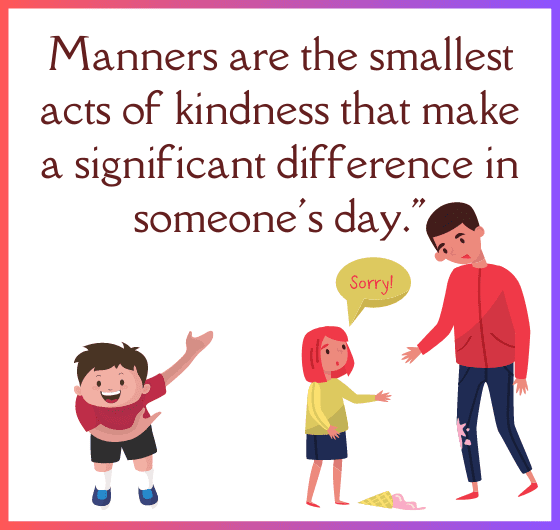
5. When you wrong someone, say ‘Sorry’ and don’t ruin your apology with unnecessary excuses just to justify what you’ve done.
“People may forget what you said, but they will never forget how you made them feel.” —Carl W. Buechner
When you make a mistake and wrong someone, it’s important to take responsibility for your actions and offer a sincere apology
Apologizing without making excuses allows you to acknowledge the impact of your actions on the other person. By avoiding the temptation to make excuses, you show genuine remorse and respect for the other person’s feelings.
Remember, when you wrong someone, saying “Sorry” without unnecessary excuses is a sign of respect and sincerity, and that is what’s exactly required.
“Sensible social responsibility is about making ethical choices and standing up for what is right, even when it’s not the easiest path.”
6. When someone tells you a secret, take it with you to your grave, even if you wake up as enemies the next morning.
“Being socially responsible means understanding that our actions have an impact on others and the world around us.”
The importance of keeping secrets lies in the understanding that trust is fragile and can easily be broken. When someone shares a secret with you, they are entrusting you with sensitive information, often because they need emotional support or seek advice. By keeping their secret, you show that you value their trust and respect their privacy.
When someone shares a secret, it is crucial to honor their trust and keep the secret with you, even if your relationship turns sour, as it will fuel your own dignity.
Remember, when someone tells you a secret, keeping it to yourself is a sign of respect, loyalty, and trustworthiness.
7. Never go to someone’s place uninvited or without letting them know you are passing by in advance.
“Remember, there’s no such thing as a small act of kindness. Every act creates a ripple with no logical end.” – Scott Adams
When you visit someone’s home without prior notice, you may catch them off guard, interrupt their plans, or invade their privacy.
Respecting personal boundaries and showing consideration for others’ privacy is essential in maintaining healthy relationships. One important aspect of this is to never go to someone’s place uninvited or without letting them know in advance that you are passing by.
Remember, by respecting others’ boundaries and giving them the courtesy of advance notice, you maintain healthy relationships and avoid being known as awkward.
8. Don’t make plans in front of those you are not willing to invite, especially if it is at your place, your birthday, or a special occasion.
“Kindness is a language that the deaf can hear and the blind can see” — Mark Twain
Respecting boundaries and showing consideration for others is vital in building and maintaining strong relationships. One important aspect of this is to never make plans in front of those you are not willing to invite, especially if it is at your place, your birthday, or a special occasion. This simple act demonstrates respect, fairness, and thoughtfulness toward others.
It’s important to remember that everyone wants to feel valued and included, especially during significant events or gatherings.
“To be socially responsible is to act with integrity, empathy, and a deep sense of compassion for others.”
9. Don’t break your promise, or don’t make one if you are not sure you can keep it.
“Manners are the smallest acts of kindness that make a significant difference in someone’s day.”
When you make a promise to someone, it is essential to fulfill it or avoid making one if you are uncertain about your ability to keep it.
Breaking a promise can erode trust and can damage the bond between individuals. When you fail to follow through on your commitments, it can lead to disappointment, frustration, and a loss of faith in your words.
10. If someone shows you a photo on their phone, don’t swipe left or right. If they want to show you what’s next they’ll do it.
“Being socially sensible is about recognizing the power of our words and actions in shaping the lives of others.”
When someone shows you a photo on their phone, it’s important to refrain from swiping left or right without their permission. Respect their boundaries and let them guide the viewing experience. This simple gesture holds significance in our digital age, where privacy and personal connections are valued.
Just as you wouldn’t flip through someone’s photo album without permission, the same courtesy should be extended to digital photos.
To enhance the user experience and avoid any discomfort, it’s essential to respect the owner’s control over their photos.
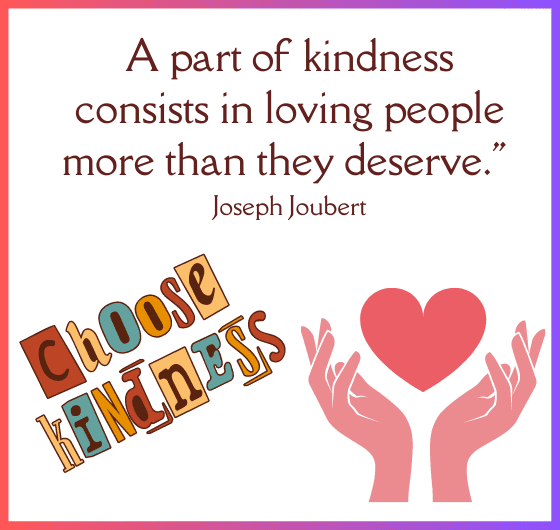
11. Respect others’ personal space and privacy
“Showing gratitude, not only makes others feel appreciated, but also brings joy and fulfillment to our own hearts.”
Respecting others’ personal space and privacy is crucial for maintaining healthy relationships and creating a harmonious environment. Personal space refers to the physical and emotional boundaries individuals establish to feel comfortable and secure.
By understanding the importance of personal space, we can foster trust, build stronger connections, and avoid infringing on others’ privacy
By being mindful of others’ boundaries, both in physical and digital interactions, we create a more friendly and respectful environment.
12. When someone is speaking directly to you, give them your attention.
“The true essence of life lies in being kind, humble, and compassionate towards all living beings.”
When someone is speaking directly to you, it is essential to give them your undivided attention. By focusing on the person speaking, you not only make them feel valued but also create an environment that encourages open and meaningful dialogue.
In today’s fast-paced digital world, distractions are abundant. However, by consciously choosing to be present in conversations, we build strong relationships
This simple act of attentive listening holds immense importance in our lives, contributing to effective communication, building relationships, and showing respect for others.
13. Two things you shouldn’t offer unless you are asked, an opinion and advice
“Be a light in someone’s darkness, and you’ll understand the true meaning of spreading love and kindness.
When it comes to offering opinions and advice, it is crucial to remember that unless asked, it’s best to refrain from sharing them. This simple principle holds significant importance in our lives, contributing to respectful communication, fostering independence, and promoting healthy relationships.
In our highly opinionated world, it is easy to feel compelled to provide input or advice in every situation.
However, by refraining from offering unsolicited opinions and advice, we honor individual perspectives and promote healthy boundaries.
14. Say ‘Please’ and ‘Thank you’
“Gratitude is the gateway to happiness and contentment in life”
Saying “please” and “thank you” may seem like simple gestures, but they hold immense importance in our daily interactions. These words not only reflect good manners but also have the power to show kindness, build connections, and make a positive impact on our relationships.
When we use these phrases genuinely and consistently, we create an atmosphere of gratitude and respect.
So, let’s make it a habit to say “please” when making requests and “thank you” when expressing gratitude.
15. Only suggest splitting the cheque evenly if your dish is the least expensive among the rest.
“Be thankful for what you have; you’ll end up having more. If you concentrate on what you don’t have, you will never, ever have enough.” — Oprah Winfrey
When it comes to splitting the bill evenly, it’s important to consider fairness and equality. Only suggesting to split the bill evenly if your dish is the least expensive among the rest shows thoughtfulness and consideration for others. By doing so, you ensure that everyone pays their fair share based on what they have consumed.
By suggesting splitting the bill based on individual orders, you promote a sense of fairness and avoid burdening others with additional costs. It is respectable and helps in stronger bonds for the future.
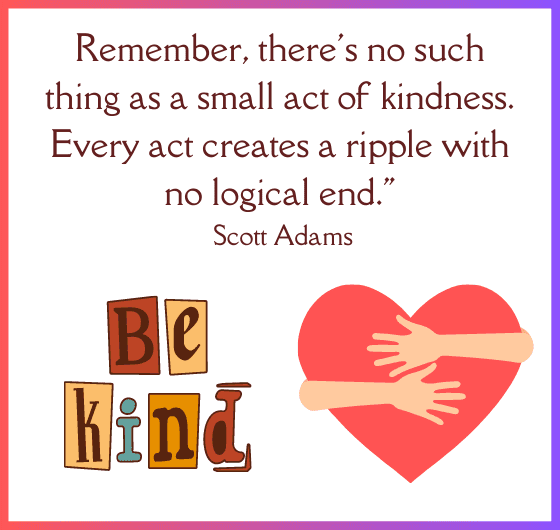
16. If you borrow someone’s car, fill up the tank before you return it.
“The true essence of life lies in being kind, humble, and compassionate towards all living beings.”
When you borrow someone’s car, it’s essential to fill up the tank before returning it. This simple act of refueling shows respect, gratitude, and responsibility towards the owner and their property. By returning the car with a full tank, you ensure that the owner doesn’t have to worry about fueling up before their next journey.
Remember, borrowing a car is a privilege, and by taking responsibility for refueling, you strengthen the bond of trust between friends, family and further ensure a positive borrowing experience.
17. If you borrow money from someone, return it, even before they ask for it.
“Being socially responsible is not just a duty; it is a reflection of our character and values.
Borrowing money from someone comes with the responsibility of returning it, even before they ask for it. This simple act demonstrates integrity, trustworthiness, and respect for the lender.
Returning the money promptly shows that you value the relationship and appreciate the assistance provided. It shows that you honor your commitments and can be trusted with financial matters.
So, next time you borrow money, make it a priority to return it as soon as you can.
18. Don’t lend out what you borrowed. If it is not yours, don’t act as if it is.
“Manners are the smallest acts of kindness that make a significant difference in someone’s day.
This simple but profound rule emphasizes the importance of respecting boundaries and being honest in our actions. When we borrow something from someone, whether it’s money, an item, or even trust, it’s essential to treat it with care and ensure its return.
By doing this, we foster trust, maintain healthy relationships, and ensure that our actions align with our values of integrity and respect. So, remember, if it’s not yours, don’t act as if it is.
19. Do not swipe left or right if someone shows you a photo on their phone.”
“Being socially responsible is not just a duty; it is a reflection of our character and values.
Swipe left or right on dating apps has become a common way to make quick judgments based on a person’s photo. However, in real life, it’s important to remember the principle: “Do not swipe left or right if someone shows you a photo on their phone.”
This simple guideline highlights the significance of respecting privacy and avoiding snap judgments based solely on appearances.
So, next time someone shares a photo with you, remember to appreciate the moment and the trust they have placed in you.
20. Don’t ask for something if the person only has one left — gum, cigarette, piece of cake etc.”
“Good manners are like the sweet fragrance that lingers long after the flower has gone”
Asking for something when the person only has one left, whether it’s a piece of gum, a cigarette, or a slice of cake, is an important aspect of consideration and empathy in our daily interactions. It reflects our understanding of others’ needs and the value we place on their possessions.
By not asking for the last item, you promote a sense of fairness and prevent potential disappointment or discomfort for the other person. This simple act of restraint showcases empathy and thoughtfulness.
21. Don’t whisper something to someone when it is only one more person sitting with you two.
“In a world where you can be anything, choose to be kind.”
Whispering something to someone when there is only one more person sitting with you two might seem harmless, but it can have unintended consequences and impact the dynamics of the conversation.
It’s important to consider the implications of excluding the third person and the potential discomfort it may cause.
In conclusion, avoiding whispering when there is only one more person present fosters an inclusive and respectful environment.
22. Don’t put your music on speakers when in a public space. It’s not like everyone wants the same genre or was in the mood for music. Get your headphones.
“Being socially sensible means using our privilege and influence to uplift those around us.”
When in a public space, it’s important not to put your music on speakers. Not everyone wants to listen to the same genre or maybe in the mood for music at that moment. Instead, it’s better to use headphones, which allow you to enjoy your music while respecting the preferences and needs of others in the vicinity.
In conclusion, opting for headphones instead of speakers in public spaces is a considerate choice. It allows you to enjoy your music while being mindful of others’ preferences and the peaceful ambiance of the surroundings.
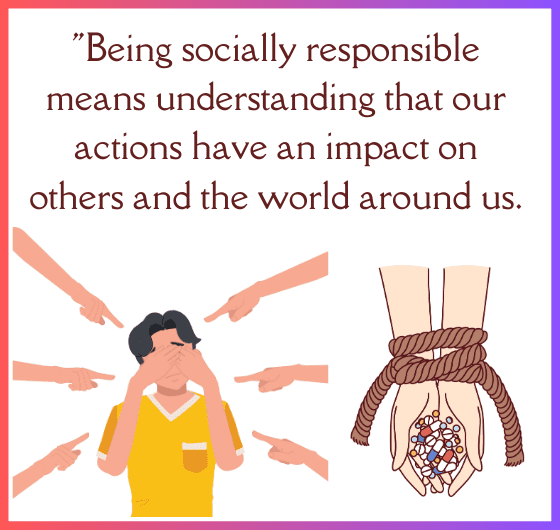
23. Smile often
“Spread love and kindness like confetti, and watch the world become a brighter place”
Smiling often is a simple yet powerful action that can bring numerous benefits to our lives. Not only does it have the ability to brighten our mood, but it also has a positive impact on our overall health and the people around us. Smiling is a conscious choice that can uplift our spirits and create a ripple effect of positivity.
It has been found that smiling can help us live longer by promoting better health and well-being.
Smiling relieves stress and reduces its impact on our appearance and state of mind.
It elevates our mood and triggers the release of neurotransmitters that improve our emotional state
24. If you use up all of the toilet paper, you go refill it.
“Being nice is not a weakness; it’s a strength that brings people together.”
If you use up all of the toilet paper, it’s important to take responsibility to refill it. This simple action may seem insignificant, but it plays a crucial role in maintaining a functional and considerate household. Refilling the toilet paper ensures that everyone who uses the bathroom has a convenient and hygienic experience.
25. Don’t make false promises and after that mess up an apology with an excuse.
“A single act of kindness can change someone’s life forever. Be the reason someone smiles today.
Making false promises and then attempting to apologize with an excuse is not only ineffective but also damaging to relationships and personal integrity. It’s important to understand the significance of being genuine and taking responsibility for our actions.
When we make false promises, we create false expectations in others. We raise hopes and build trust, only to let them down in the end. This can lead to disappointment, hurt feelings, and a breakdown in trust between individuals.
Let’s remember the power of genuine actions and apologies in building and maintaining meaningful relationships.
26. Chew with your mouth closed. Shocks me how many adults I see chewing with their mouths open.
“No act of kindness, no matter how small, is ever wasted.” — Aesop
Chewing with your mouth closed is not only a matter of basic manners but also plays a significant role in maintaining a pleasant dining experience and fostering positive social interactions. It’s surprising how many adults still chew with their mouths open, unaware of the impact it can have on others around them.
When you chew with your mouth open, it can be quite off-putting for those sharing a meal or conversation with you. The sound and sight of food being chewed can be distracting, unappetizing, and even disrespectful to others.
Let’s remember the importance of practicing good table manners and making mealtimes more enjoyable for everyone involved.
27. Never make fun of someone else’s laugh, be it how they sound or how they look.
“Good manners will open doors that the best education cannot.” — Clarence Thomas
Laughing is the most natural expression of joy and happiness and for someone to feel self-conscious about that because of other’s comments is so brutal.
Making fun of someone else’s laugh, whether it’s about how they sound or how they look, is a cruel act that can have a profound impact on their self-esteem. Laughing is a natural expression of joy and happiness, and everyone should feel comfortable embracing it without fear of judgment or ridicule.
Imagine being in a situation where you’re laughing uncontrollably because something genuinely tickles your funny bone, only to have someone mock or make fun of you. It’s disheartening and can make you self-conscious about expressing your happiness openly.
Remember, a world where everyone feels comfortable embracing their laughter is a happier and more compassionate world for all. Let’s celebrate the beauty of laughter and uplift one another with kindness and acceptance.
28. Don’t start drama at a funeral
“In a world where everyone is connected, being socially sensible is more important than ever”
Amidst the sadness and grief, it is essential to avoid starting drama or conflicts that can further exacerbate the difficult situation.
Starting drama at a funeral not only disrupts the atmosphere of remembrance but also dishonors the memory of the departed. It’s a time to come together, support one another, and focus on celebrating the life that was lived.
Remember, a funeral is a time to come together, share memories, and find solace in the presence of loved ones. Let us strive to create an environment of compassion, support, and understanding, keeping drama at bay and honoring the life that was lived.
29. Don’t leave your shopping cart in the middle of the grocery aisle!
“Social sensibility is the ability to understand and respect the needs, feelings, and boundaries of others.”
Firstly, leaving your cart in the middle of the aisle disrupts the flow of other shoppers. Grocery store aisles can be crowded, and maneuvering around an abandoned cart becomes an obstacle course. It creates inconvenience and slows down the shopping process for everyone.
By simply parking your cart to the side, you allow others to move freely and access the products they need without hindrance.
Remember, a small act like returning your shopping cart may seem insignificant, but it contributes to a smoother and more pleasant shopping experience for everyone.
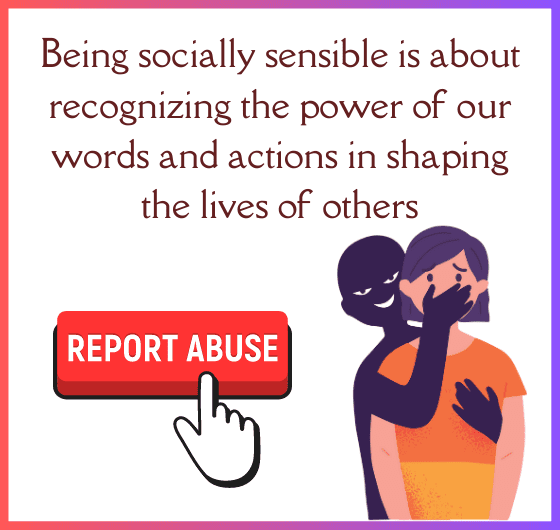
30. If you’re borrowing it for a third time, you need one of your own
“True social intelligence lies in empathizing with others and treating them with kindness and consideration.”
If you find yourself borrowing something for the third time, it’s a clear sign that you need one of your own. Whether it’s a book, a tool, or any item you frequently rely on, owning it brings numerous benefits and convenience to your life.
Ownership brings independence, convenience, and personalization to your life. Whether it’s for practical or sentimental reasons, having your own belongings enhances your daily experiences and allows you to fully embrace the benefits of ownership.
31. If you have to cancel on a friend, it is your responsibility to reschedule
“Being socially sensible is about being aware of the impact of your actions and words on others.”
When it comes to canceling plans with a friend, it is not only important to communicate your inability to attend, but it is also your responsibility to reschedule. Life can sometimes get busy, and unexpected circumstances may arise that prevent us from fulfilling our commitments.
However, taking the initiative to reschedule shows your consideration, respect, and commitment to maintaining the friendship.
Taking the responsibility to reschedule demonstrates your commitment to the friendship and shows that you value the time spent together.
32. Don’t propose at someone else’s wedding
“A socially sensible person knows that sometimes the best thing to say is nothing at all.”
Proposing at someone else’s wedding is a big no-no. In life, there are certain moments that are meant to be special for the couple getting married, and it is important to respect their joyous occasion. Inserting yourself into their celebration by proposing steals the spotlight and takes away from their special day.
In conclusion, proposing at someone else’s wedding is considered impolite and disrespectful.
33. Do not vape when in a space where you are not permitted to smoke
“It takes wisdom and sensitivity to navigate social situations with grace and tact.
Vaping in a space where smoking is not permitted is not only against the rules but also poses risks to your health and the well-being of those around you. It is important to respect the policies and regulations in place to ensure a safe and comfortable environment for everyone.
When you vape in a space where smoking is prohibited, you expose others to secondhand aerosol, which can contain harmful chemicals and toxins. This can be very disrespectful and especially problematic for individuals with respiratory conditions or allergies.
So, refrain from vaping in spaces where smoking is not permitted.
34. Be kind to people that are working. Food staff, medical staff, etc. Don’t take your bad day out on someone else
“Being socially sensible means recognizing and valuing the diversity of people around you.”
Being kind to people who are working, whether they are in the food industry, medical field, or any other profession, is a simple yet powerful act that can make a significant difference in their day. It is important to remember that the people serving us or providing essential services are human beings with their own emotions and struggles.
They deserve to be treated with respect and kindness, regardless of the challenges we might be facing in our own lives.
It costs nothing to be polite, patient, and appreciative, but it can make a world of difference to someone who is working hard to provide us with the services we need.
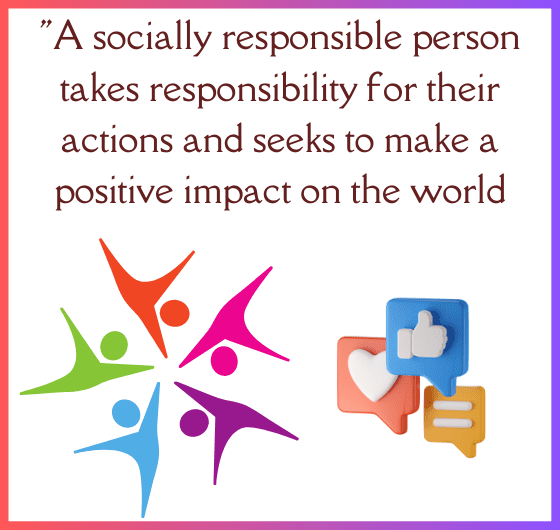
35. OFF BEFORE ON. Let the people off the elevator and train before you get on
“Social sensibility is the key to building meaningful and harmonious relationships with others.”
When it comes to using elevators or trains, a simple yet important rule to remember is to let people off before getting on. This small act of courtesy can make a big difference in creating a smooth and efficient flow of people.
By allowing others to exit first, you show respect for their personal space and ensure a safe and comfortable experience for everyone.
By following this simple rule, we contribute to a culture of courtesy and ensure a smoother flow of people in public spaces.
36. Show the same respect for everyone. Whether they write your paycheck or clean the floors. We are all people
“Social sensibility is the art of making others feel valued and appreciated.”
Showing the same respect for everyone, regardless of their position or role, is a fundamental aspect of building a compassionate and inclusive society. Whether someone writes your paycheck or cleans the floors, we are all people with unique experiences, feelings, and worth.
Treating others with respect not only reflects our values but also has a positive impact on our own well-being and the overall harmony of our communities.
By valuing and acknowledging the worth of each individual, we contribute to a culture of empathy, equality, and unity.
37. Do NOT smoke right near entrances and exits!! Also if you need to smoke, please move away from those who don’t! Some people get asthma attacks from that.
“Being socially sensible is about being mindful of the impact you have on others and striving to leave a positive impression.”
Smoking near entrances and exits can be a major inconvenience and health hazard for those around you. It’s important to consider the well-being of others and be mindful of where you smoke.
Not only can smoking in these areas expose non-smokers to secondhand smoke, but it can also trigger asthma attacks in individuals who are sensitive to it.
It’s important to remember that some people may have respiratory conditions like asthma, and secondhand smoke can exacerbate their symptoms.
So, be mindful of where you smoke and avoid smoking near entrances and exits. By doing so, you demonstrate respect for others’ health and minimize the risk of triggering asthma attacks or causing discomfort due to secondhand smoke.
38. Behaving gently and speaking in a normal voice but not loudly.
“The best way to find yourself is to lose yourself in the service of others.” — Mahatma Gandhi
Behaving gently and speaking in a normal voice, rather than loudly, is a simple yet powerful way to create a positive impact on the people around you. It is important to recognize the value of gentle behavior and the impact it can have on fostering harmonious relationships and a peaceful environment.
When we choose to speak softly and calmly, we create an inviting atmosphere where others feel comfortable expressing themselves and engaging in meaningful conversations.
It allows us to create a positive and peaceful environment where communication flows smoothly and everyone feels respected.
39. Don’t approach, or let your kids run up and approach, a dog they dont know. Not all dogs had great pasts.
“Prevention is better than cure”
Nervous dogs aren’t bad dogs, but people running up and reaching down will definitely scare them. The dogs can get very aggressive and hurt your child badly.
By refraining from approaching them or allowing your kids to run up to them, you prioritize the safety and well-being of both humans and dogs.
Let’s create a harmonious environment where everyone can coexist peacefully and happily.
40. Don’t try to start a conversation with someone wearing headphones in both ears.
“Our actions have the power to inspire others to be more compassionate and socially responsible.”
They’re usually wearing headphones because they don’t want to interact with anyone else unless it’s necessary.
When someone is wearing headphones in both ears, it’s best to refrain from trying to start a conversation with them. They have chosen to wear headphones because they likely want to enjoy their music, podcast, or audiobook without any interruptions.
Headphones serve as a signal that they prefer not to engage with others unless necessary. Respecting their choice to use headphones demonstrates an understanding of personal boundaries and allows individuals to enjoy their personal time.
Let’s cultivate a culture of understanding and respect for personal boundaries.
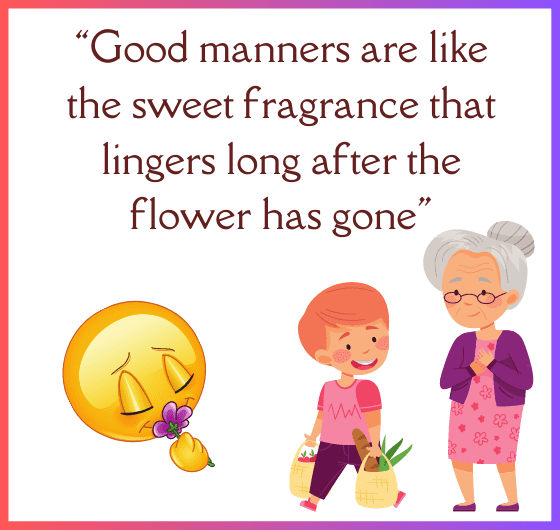
41. Asking for permission, if you have to use other’s things.
“In a world where we can be anything, let’s choose to be kind, compassionate, and socially responsible.”
Asking for permission before using someone else’s things is not only polite but also demonstrates respect for others and their belongings.
When we seek permission, we acknowledge that we are aware of personal boundaries and understand that using someone else’s belongings without consent is inappropriate. It shows that we value their ownership and are considerate of their needs.
By seeking consent, we show that we value others’ ownership and understand the significance of personal boundaries. It is a healthy habit.
42. Keeping yourself and your surroundings clean and tidy.
“Being socially responsible means being mindful of how our actions impact others and the world we live in.”
When we prioritize cleanliness, we create a pleasant environment that positively impacts our physical and mental well-being.
Cleaning yourself regularly, such as taking showers and brushing your teeth, helps prevent the spread of germs and keeps your body fresh. It also boosts your confidence and promotes a positive self-image.
Studies have shown that cluttered spaces can contribute to stress, anxiety, and feelings of being overwhelmed. So, keeping tidy is the best policy.
43. Following the rules that imply at certain places
“Love and compassion are necessities, not luxuries. Without them, humanity cannot survive.” — Dalai Lama
Following the rules that apply to certain places is essential in our daily lives. Whether it’s at school, work, or public spaces, adhering to rules and regulations ensures order, safety, and harmony. Rules serve as guidelines that promote fairness, respect, and cooperation among individuals.
By following rules, we contribute to a positive and harmonious environment where everyone can thrive.
44. Being polite and using words such as Please, Sorry, and Thank you will please the people around you and makes a good impression.
“The true measure of any society can be found in how it treats its most vulnerable members.” — Mahatma Gandhi
Being polite and using words such as “Please,” “Sorry,” and “Thank you” can have a profound impact on the people around you and make a lasting impression. Politeness is not just a superficial gesture; it reflects respect, empathy, and good manners.
By incorporating these simple words into our interactions, we show consideration for others and create a positive atmosphere.
Using these words not only makes others feel valued and respected but also enhances our own character and reputation.
It reflects positively on our integrity and leaves a lasting impression of professionalism, kindness, and thoughtfulness.
45. Hold the door for the person behind you and if someone holds the door for you, always say Thankyou.
“If you want others to be happy, practice compassion. If you want to be happy, practice compassion.” — Dalai Lama
Holding the door for the person behind you and expressing gratitude by saying “Thank you” are simple acts of kindness that have a significant impact on our lives.
This small gesture reflects thoughtfulness, consideration, and respect for others, creating a positive environment and fostering social connections.
These small gestures reflect thoughtfulness, consideration, and respect, fostering positive social connections and creating a harmonious environment.
Let’s embrace these simple acts of kindness and make the world a better place, one door at a time.
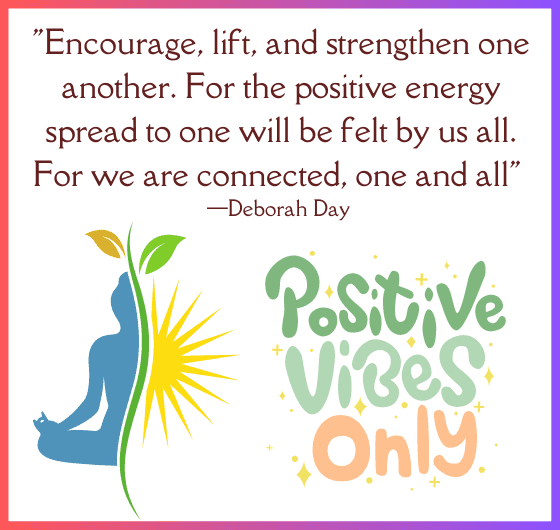
46. Using your own things and sticking to your boundaries.
“Being socially responsible means being mindful of how our actions impact others and the world we live in.”
Using your own things and sticking to your boundaries is crucial for leading a balanced and fulfilling life. It empowers you to establish a sense of ownership, maintain personal boundaries, and prioritize your well-being.
When you use your belongings, you create a sense of familiarity and comfort that reflects your individuality and personal style.
By sticking to your boundaries, you set limits on how others can interact with your possessions and respect your personal space.
47. Put the smartphone away during meals, Right Now.
“Compassion and empathy are the pillars of a harmonious society.”
Putting the smartphone away during meals is crucial for enhancing our social interactions and enjoying quality time with family and friends.
By detaching from our devices and focusing on the present moment, we can create meaningful connections and savor the dining experience.
Research has shown that using smartphones during meals leads to decreased enjoyment and engagement with others
By doing so, we prioritize human connection and cultivate a richer and more fulfilling dining experience.
48. Step Outside to Answer Phone Calls and not disturb others in the room.
“Love and compassion are the bridges that connect us all as human beings.”
It’s a simple action that can have a significant impact on your relationships and the overall harmony of your surroundings.
By stepping outside to answer phone calls, you create a respectful and peaceful environment for those around you.
By stepping outside, you avoid interrupting conversations, concentration, or the tranquility of a shared space.
It shows respect for others’ boundaries and allows them to continue their activities undisturbed.
49. Never litter your garbage in your neighborhood, at home are places you travel, anywhere. Please!
“Being socially responsible means understanding the impact of your actions on society and taking steps to make a positive difference.”
Never litter your garbage in your neighbor’s yard, at home, or anywhere you travel. It may seem like a small act, but it has significant implications for our environment and the well-being of our communities. Littering not only pollutes the surroundings but also reflects a lack of respect for the places we inhabit and the people around us.
Trash can harm wildlife, contaminate water sources, and disrupt ecosystems.
By disposing of garbage responsibly, we preserve the cleanliness and serenity of our surroundings, creating a more pleasant environment for everyone.
50. Clean Up After Yourself. At home. At work. At a friend’s house
“Social responsibility is not just about doing what’s right for yourself; it’s about doing what’s right for everyone around you.
Clean up after yourself. Whether you’re at home, work, or a friend’s house, taking responsibility for your own mess is a simple yet powerful practice that has a positive impact on your life and the lives of those around you.
Cleaning up after yourself shows respect, consideration, and a sense of personal accountability.
By tidying up after yourself, you create a space that is comfortable and welcoming, promoting a sense of relaxation and well-being.
Keeping your workspace clean and organized enhances productivity and efficiency, allowing you to focus on your tasks without distractions.
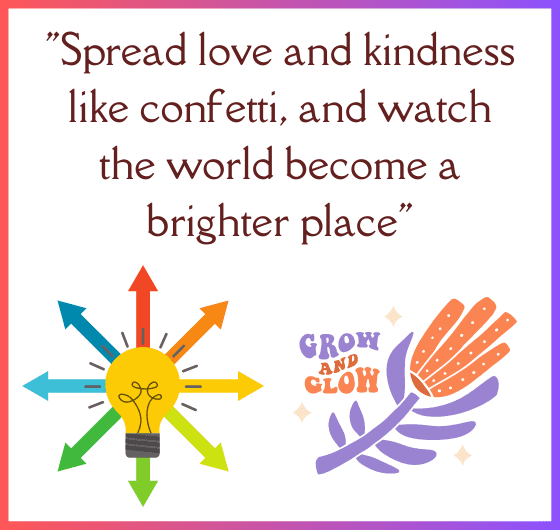
51 . Look At the Person Who Is Speaking to You. Seriously. Look up from your smartphone!.
“In a world where we are all interconnected, being socially responsible is not just an option; it’s a moral obligation.”
Look at the person who is speaking to you. Seriously. Look up from your smartphone! In today’s digital age, it’s become all too common for people to be engrossed in their phones, even when someone is trying to communicate with them.
However, this behavior has significant implications for personal connections, communication skills, and overall social interaction.
By focusing on the person instead of your phone, you can engage in meaningful conversations and establish stronger connections with others.
It’s a small gesture that can make a big difference in building and maintaining relationships.
It’s about being present in the moment and showing respect for the person in front of you.

